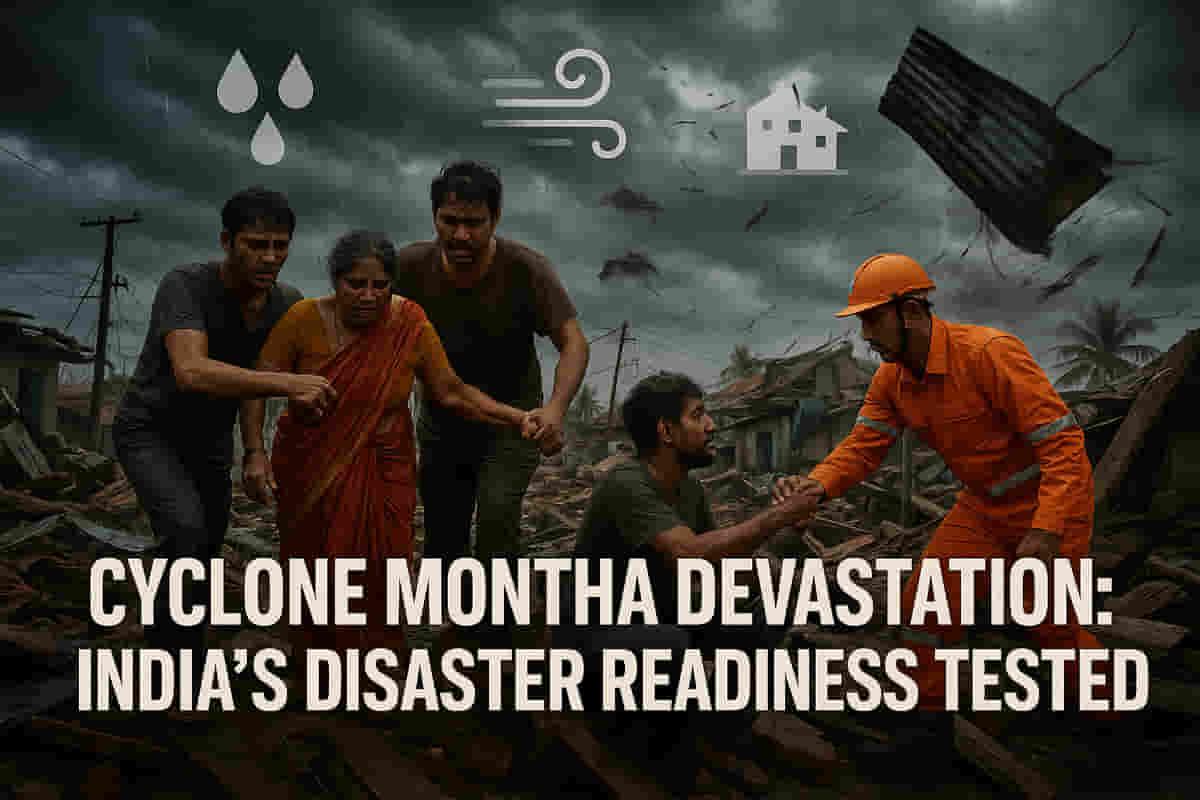Cyclone Montha Wreaks Havoc: India's Disaster Preparedness Under Scrutiny Amidst Economic Losses
Economy
|
1st November 2025, 2:36 AM

▶
Short Description :
Detailed Coverage :
Cyclone Montha made landfall on India's eastern coast, bringing intense winds and heavy rainfall. The state of Andhra Pradesh was severely impacted, with thousands of acres of standing crops destroyed and power lines damaged. Numerous people have been displaced by the cyclone.
In anticipation of the cyclone, India's National Disaster Response Force deployed 26 teams, and the army, navy, air force, and coast guard were placed on high alert for rescue and relief operations.
Several letters to the editor pointed out that India's disaster preparedness remains largely reactive rather than preventive, despite annual cyclonic events. Concerns were raised about the need for a more proactive approach, including regular public education, local drills, investment in safer housing, and improved drainage and evacuation systems, especially as cyclones are becoming more frequent due to climate change.
There is a call for the central government to provide immediate aid to the affected state of Andhra Pradesh.
Impact: This cyclone's damage to agriculture and infrastructure will have direct economic consequences. Sectors like agriculture, infrastructure development, and insurance are likely to be affected. Increased government spending on relief and reconstruction will also be a factor. The need for better disaster preparedness could drive investment in related technologies and infrastructure projects in the future. The frequency of such events due to climate change poses a recurring risk to economic stability in coastal regions. Impact Rating: 7/10
Difficult Terms: Cyclone: A violent rotating storm characterized by a low-pressure center, strong winds, and heavy rain. Standing crops: Crops that are still growing in the fields and have not yet been harvested. Disaster preparedness: The state of being ready to respond effectively to a disaster, involving planning, training, and resource allocation. Reactive approach: Responding to events after they have occurred. Preventive approach: Taking actions to stop events from happening or to minimize their impact before they occur. Climate change: Long-term shifts in temperatures and weather patterns, often attributed to human activities like the burning of fossil fuels.